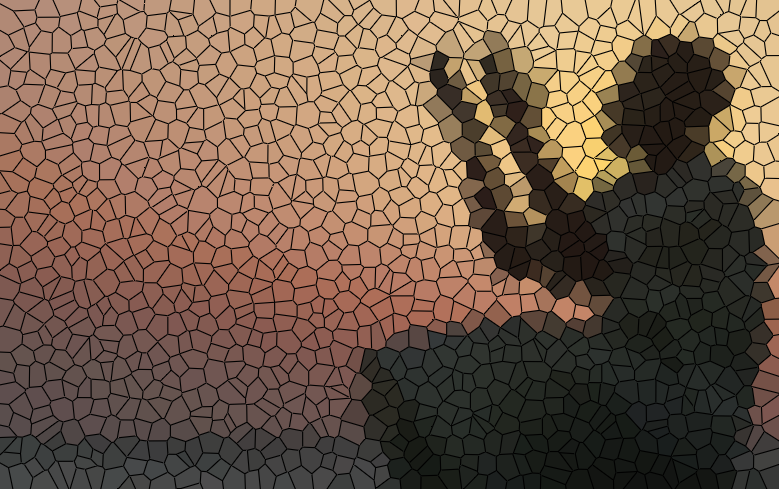Ramadan: For the mind, body and soul
Moulana Ebrahim I Bham
RAMADAAN is once again upon us. This is the sacred month of the Islamic calendar when Muslims observe fasts from dawn until dusk.
The fast takes the form of abstinence from food, drink, smoking and carnal intercourse. Nightly prayers, devotions and a retreat during the last 10 days of the month complement the height-ened acts of worship during the holy Ramadaan.
Guarding the fast also implies being disciplined with one’s time which is precious and should be used in acts of virtue such as the recitation of the Qur’an, introspection and engaging in acts of charity.
A person who fasts abstains from engaging in frivolous acts and obscen-ities, whether in speech or sight. The Divine Ordinance of fasting in the Noble Qur’an specifically mentions the pur-pose of fasting to be a way towards instilling self-restraint.
Breaking the fast, iftaar, is a time of mixed feelings for the believer. On the one hand, there is a joy of personal accomplishment in completing the fast. There is also the relief in the partaking of food and drink after one has gone the whole day, hungry and thirsty.
On the other hand, there is a degree of spiritual apprehension that one may have fallen short in the fulfilment of the Divine Ordinance. One therefore supplicates with humility so that the imperfections of the fast are forgiven by the Almighty and the fast be accepted.
The spiritual benefits of Ramadaan are immense. The Almighty singles out fasting as a special act of obedience and an exercise in sincerity whose recompense is with Him, especially reserved for the worthy believer. This is the case as the one who truly fasts, unlike with other religiously obligatory observances, is known by Him alone. Fasting deprives the bodily so that we grow and enrich our spiritual selves, inculcating a consciousness of the Creator.
Collective acts of Ramadaan such as the breaking of the fast, nightly prayers and providing for the needy are also positively linked to our emotional and social well-being.
The Covid-19 pandemic has high-lighted the importance of these dimensions of our overall mental health.
While circumstances are more permitting at this stage in allowing us to congregate and socialise, it remains our collective responsibility to take into account the lurking risk of the spread of the coronavirus.
We call upon all congregants to take all appropriate measures to not only keep those around us at ease but also play our roles to make everyone safe. Congregating for prayers, gathering for the breaking of the fasts and the man-ner of reaching out to family, friends, colleagues and beneficiaries of charity should take place while observing recommended measures that will help us to stop the pandemic.
In recent times there have been a number of experts who have written about the medical benefits of intermit-tent fasting such as the regulation of blood sugar levels. From a health point of view, fasts of Ramadaan have benefits for the body. A fasting regime can prove helpful in revitalising the body through a better metabolism and detoxification. The deliberate deprivation through fasting potentially builds an endurance for the body.
While Ramadaan is obligatory upon every Muslim of puberty and sound mind, male and female, it is recog-nised by Islamic law that by observing the fasts, others may be presented with health risks. It is therefore important to seek advice from a physician one has confidence in, on whether to observe the fasts without any aggravation of one’s condition.
Many take the occasion of Ramadaan to adjust towards a healthier lifestyle. They may quit smoking and moderate their diets. Whatever the case may be, it is important to avoid drastic changes that may have adverse health effects in the longer term. Here again, one should seek the counsel of a suitable expert.
Medicines, including vaccines that have been determined to be safe and halaal (Islamically permissible) to take, can be administered hypodermically without breaking the fast. The general rule is that the fast breaks only by any-thing, including medicines, if taken orally or directly into the alimentary canal.
In particular, and in the context of the pandemic, the Jamiatul Ulama South Africa has so far determined that the Johnson and Johnson formulation of Covid-19 vaccine is permissible to Muslims.
The gifts of faith Ramadaan nurtures include a state of mindfulness about our Creator, the purpose of life and care for the less-fortunate. A mindfulness about ourselves also implies keeping healthy all dimensions of our being through such activities as wholesome nourish-ment, a balanced indulgence in what is halaal, reflection and devotion.
Health and wellness benefits that accrue due to Ramadaan are mere spin-offs, albeit important ones. Ramadaan remains the special month in which we cultivate virtue so that we are spiritually nourished with the gifts of faith that will sustain us until the next Ramadaan.
While Ramadaan lasts, the onus is upon us to take advantage and maximise its rewards and benefits, in the now and for eternity. We wish Muslims all over the world a blessed Ramadaan and peace to all humanity.
Moulana Bham is the secretary-general of the Jamiatul Ulama South Africa. He is also the imam of the Hamidia Mosque in Newtown, where he leads one of the largest congregations in Gauteng. Bham features regularly in broadcast programmes on iTV as well as Radio Islam International.
NOTE: Ramadaan is most likely going to start on the evening of Tuesday, April 13, subject to the sighting of the moon.

